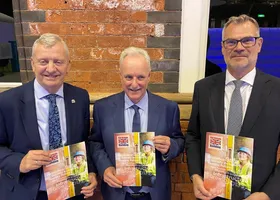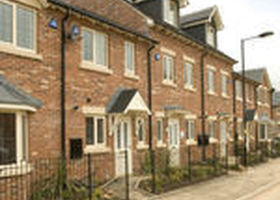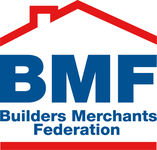
Two people created new homes in the same village, but only one received a big tax bill...
Article from Mail online Property section
By Mark Hughes-morgan
Both have built new homes over the past year, and they live only a few hundred yards from each other in an Oxfordshire village. But while architect David Hoblyn has had to pay £30,000 in tax on his £200,000 project, Fiona Benbow has completed her £400,000 build tax-free.
Because Hoblyn, 65, was renovating and extending an old chapel, his work was liable for VAT, while 51-year-old Benbow was building from scratch, which is VAT-free.
It is a discrepancy that has long infuriated self-builders and the construction industry, and is now the subject of a campaign to cut VAT on renovations and extensions to five per cent.
'The system is a double taxation on conserving an old building,' says Hoblyn, who has converted his 1850s former chapel and school rooms into a five-bedroom house in the village of Longworth.
'You are hit for the taxation and higher building costs - it is a lot more expensive to work on an existing building than to build new. The nonsense is that we are asked to renew and conserve everything we can but are penalised for doing so.'
Benbow began building on the garden of her former house, a converted pub, in December 2007 and has just moved into her new six-bedroom home, that was designed and built by a local contractor.
'It has been a good experience, although it felt stressful to begin with,' she says.
Sue had moved to downsize but put two more bedrooms on the attic storey of the new house at the suggestion of her builder to make full use of the space. 'It makes it potentially more valuable. The house is worth about £800,000,' she says.
The fact that she will have 'saved' about £60,000 by not having to pay VAT irritates David Hoblyn. When working for clients, the extra costs involved in restoration of an existing building can, he says 'limit the care and attention they can afford to give'.
'If building is a tax-raising exercise then so be it. But anyone restoring an old house should be getting a pat on the back,' he says.
There have been calls to change the tax regime for many years but it has been legally impossible because of EU rules.
However, earlier this month, a new edict from Brussels giving member states the right to set their own VAT for certain services, including building repairs, prompted the push for the petition to reduce VAT to five per cent for home improvement. It was launched at the Homebuilding and Renovating Show at the NEC in Birmingham last Friday, and will be presented to Chancellor Alistair Darling before the next Budget in April.
Mike Leonard, of the Modern Masonry Alliance, supports the petition as part of the Get Britain Building campaign (www.getbritainbuilding.org).
'We are on course to lose 450,000 jobs in the construction industry. During this recession people will be staying in their homes longer. The reduction in VAT will be the best stimulus for them to consider building.'
Reducing the VAT burden will also help reduce the appeal of cowboy cash-only builders.
For Michael Holmes, TV property presenter and an organiser of the Homebuilding and Renovating Show, such a campaign could not come at a better time. 'This is the best time in 15 years to build your own house or embark on a renovation project.'
Builders are desperate for work, more plots are available - from developers with land banks selling them off to improve cashflow - and the price of building materials is falling. And, according to self-build mortgage specialist Buildstore, enquiries are up more than 30 per cent year on year.




















































